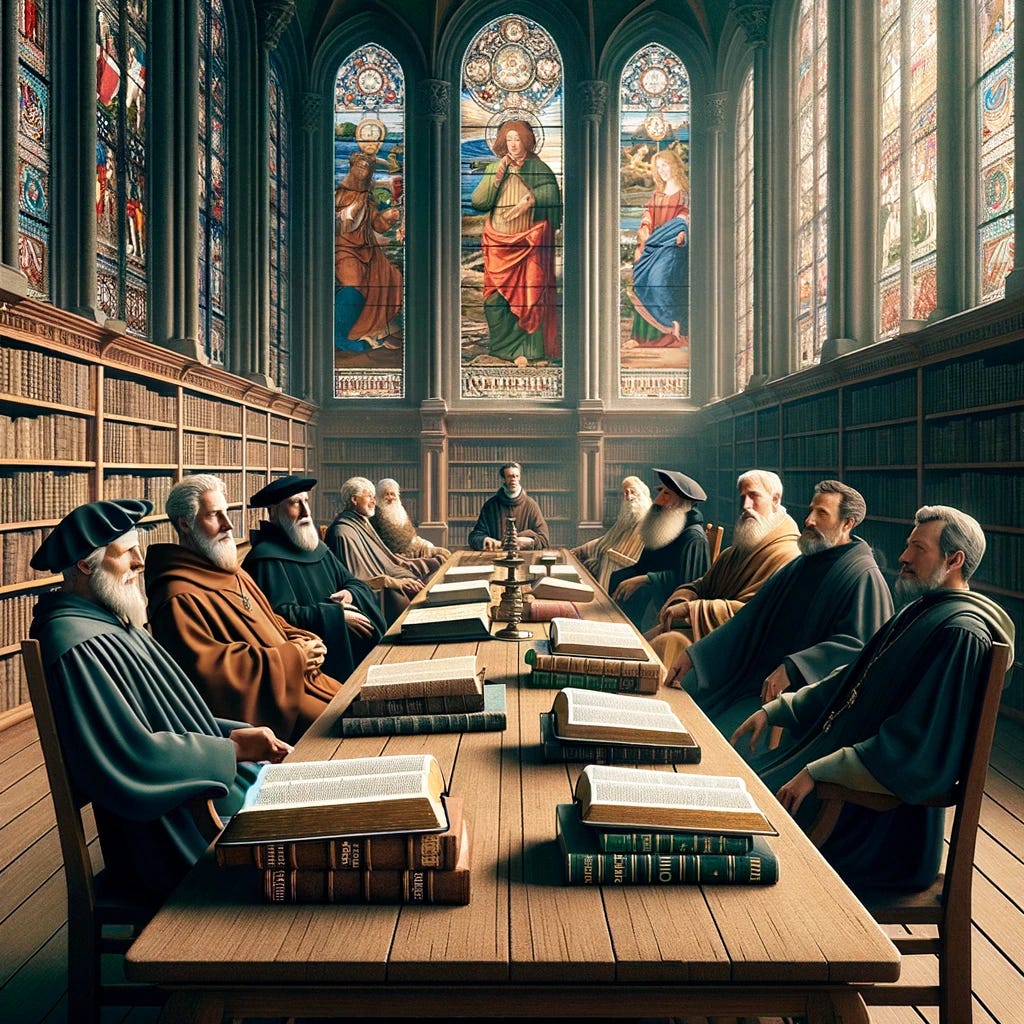Why are Catholic Bibles Bigger?
more pages, more wisdom
Catholic Bibles are typically larger than many Protestant Bibles due to the inclusion of seven additional books in the Old Testament, commonly known as the Deuterocanonical books. These books are Tobit, Judith, 1 and 2 Maccabees, Wisdom, Sirach (also known as Ecclesiasticus), and Baruch, including the Letter of Jeremiah.
The difference in size stems from historical and theological developments. During the Reformation in the 16th century, Protestant reformers, aligning more closely with the Jewish Tanakh, chose to exclude these books from their canon. They regarded them as apocryphal, arguing that these books were not part of the Hebrew Bible and were not considered canonical in Judaism.
On the other hand, the Catholic Church, at the Council of Trent (1545–1563), reaffirmed the inclusion of these Deuterocanonical books in the Canon, following the Septuagint (a Greek translation of the Old Testament) and the long-standing tradition of including these books in the Latin Vulgate Bible, which was widely used in the Western Church. This inclusion was based on the Church's understanding of the authority of the Septuagint, which was widely used in the early Christian Church and included these books.
Therefore, the "bigger" size of the Catholic Bible is due to this inclusion of additional books, which are considered to be inspired and authoritative for faith and morals in the Catholic tradition.
Objection 1: It seems that the Protestant canon is more accurate because it aligns with the Jewish Tanakh. Since the Old Testament is essentially the Jewish Scriptures, it should reflect the Jewish canon, which does not include the Deuterocanonical books.
Objection 2: Furthermore, some argue that the Deuterocanonical books were never cited as Scripture by Jesus or the Apostles in the New Testament. This absence suggests that these books were not considered authoritative or inspired, thereby justifying their exclusion from the canon.
Objection 3: Moreover, several Church Fathers and early Christian writers, including Jerome, expressed doubts about the canonicity of the Deuterocanonical books. If even these early authorities were uncertain, it seems reasonable for the Protestant canon to exclude these books.
On the contrary, the Catholic Church, guided by the Holy Spirit, has the authority to determine the canon of Scripture. This authority was exercised in various Councils, including that of Hippo (393 AD) and Carthage (397 AD), where the canons of the Bible, including the Deuterocanonical books, were affirmed.
Reply to Objection 1: While the Protestant canon aligns with the Jewish Tanakh, the early Christian Church predominantly used the Septuagint, a Greek translation of the Old Testament that included the Deuterocanonical books. The early Christians, many of whom were Greek-speaking, inherited this version of the Scriptures. The Catholic Church views this tradition as part of the divine guidance in forming the Christian canon.
Reply to Objection 2: The absence of direct quotations from the Deuterocanonical books in the New Testament does not necessarily exclude their canonicity. The New Testament does not explicitly quote from every book in the Protestant Old Testament either. Furthermore, there are allusions and thematic parallels to the Deuterocanonical books in the New Testament, which show their influence and acceptance in early Christian thought.
Reply to Objection 3: While it is true that some Church Fathers, like Jerome, had reservations about the Deuterocanonical books, the broader consensus of the Church, especially in Councils like Hippo and Carthage, affirmed their canonicity. The Catholic Church believes in the guidance of the Holy Spirit in the Church's ecumenical councils, which have the authority to discern and declare the canon of Scripture. Jerome himself submitted to the authority of the Church, including its decisions regarding the biblical canon.
In conclusion, the Catholic position maintains that the inclusion of the Deuterocanonical books in the Bible is a result of the Church's sacred tradition, the authority of the ecumenical councils, and the guidance of the Holy Spirit, affirming these books as part of the inspired canon of Scripture.


